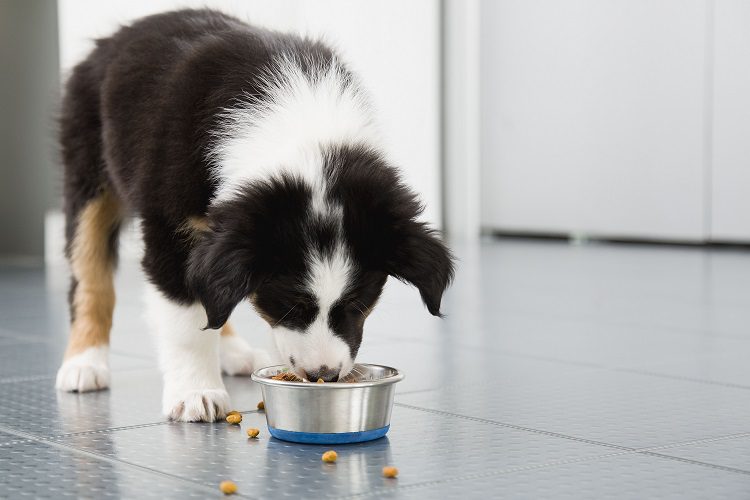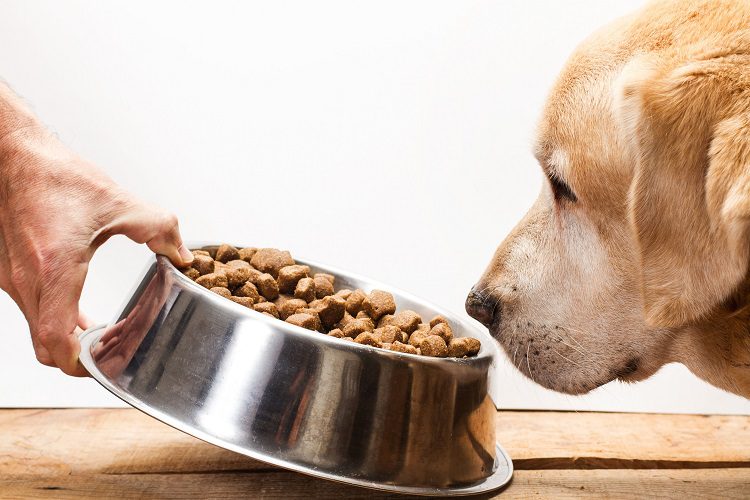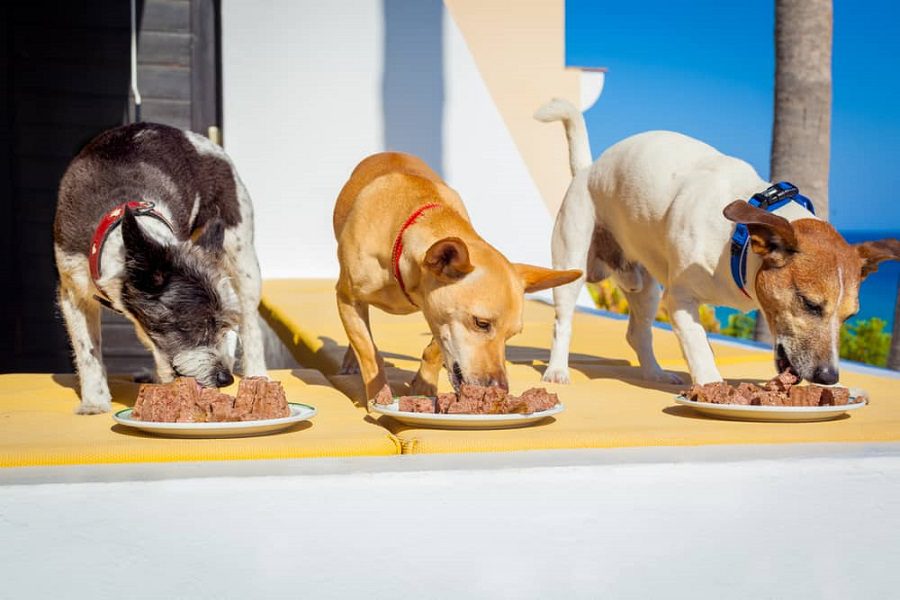Last Updated: 2 years ago
Protein is considered one of the most important nutritional elements for a dog’s internal organs and muscle tissue, which include his ligaments, cartilage, collagen and tendons, as well as overall bodily development.
Protein is a vital structural component, which can help your dog grow a shiny coat, softer hair, healthy nails and help with circulation. However, there is no question you should opt for feeding your canine companion dog food with high protein.
Every protein found in your dog’s body binds with several other types of proteins or amino acids to enable several metabolic processes to initiate.
These metabolic reactions are what keep your dog’s heart health up, his core temperature stable and his blood full of oxygen cells, which in turn effectively circulate in his body providing nutrient and oxygen rich blood to his brain and vital organs.
High protein low fat dog food can also improve his digestive system, enhancing his ability to absorb vital nutrients. Proteins are made up of 23 different amino acids.
These bodily chemicals streamline the production of new tissue cells in your dog’s body. However, your dog’s body can only naturally produce 13 of 23 amino acids. So, what does this mean?
Well, it means that to make the other 10 amino acids, he needs to munch on high protein dry dog food all the time. Quality protein-rich dog foods contain the necessary leafy green vegetables and fruits that can provide him with the amino acids, such as:
- Arginine
- Isoleucine
- Methionine
- Tryptophane
- Histidine
- Leucine
- Phenylalanine
- Valine
- Histidine
- Lysine
- Threonine
Due to the fact that amino acids and protein in your dog’s body continuously break down and are absorbed, it is imperative that they be replaced by new amino acids and protein molecules every day.
Dog food with high protein contains a combination of different and natural sources, which primarily include fish, lean meat, legumes, dry fruit, fruits, eggs and milk.
Dogs That You Should Provide A Protein Rich Diet To

Puppies
Nothing is more beneficial for a puppy than protein. A controlled diet that contains the right balance of protein is a necessary building block for the puppy to grow into a strong and healthy adult.
Moreover, high protein grain-free dog food can help your puppy strengthen his muscles, and grow a shinier and healthier coat and soft hair.
Protein is also important for his brain development. Your puppy’s diet should consist of 25% to 30% protein, which is a safe number and will help him develop without any health complications.
Plus, it is also important to combine his protein diet with 17% fat, which will ensure healthy brain activity and development. A protein-rich diet is also good for a puppy’s cellular development.
Lactating Female Dogs
Next on the list of dogs that can benefit from a protein-rich diet are female dogs that are also lactating. The protein in her diet will help produce healthier milk for her pups.
Plus, it will also help her maintain her stamina and bodily development while she is feeding her pups. Moreover, the daily recommended percentage of both fat and protein for female lactating dogs is the same as that for puppies.
Entertainer/Performance Pooches
Athletic dogs that perform in endurance competitions or performance dogs must also be provided a diet high in protein to maintain their strength and bodily development.
The protein you give your dog will help him maintain and grow stronger muscles. Plus, athletic and performance canines need protein because they burn calories much faster than normal dogs.
Carbohydrates, grains, fruits and vegetables are all sources of carbohydrates that cannot provide these dogs with slow burning calories, which is why it is important your dog’s diet should consist of 25% protein with 20% fat for optimal weight.
Dogs Whose Protein Intake Should Be Monitored

There is no question about the health benefits of high protein low fat dog food but it is also important to understand there are some canines whose protein intake should be monitored.
Dogs Struggling With Kidney Disorders
Dogs that have been diagnosed with kidney complications or impairments should not be fed a diet of high protein. If your dog suffers from a kidney disorder, only feed him the best high-protein dog food available and monitor the portions you feed him.
The reason why you shouldn’t give him protein-rich food is that it is difficult for dogs to digest the protein. This isn’t really a problem in normal, healthy dogs, but when you talk about disease stricken dogs, it could be a struggle for them.
Dogs With Underlying Health Condition That Affect The Kidneys
Dogs with certain health disorders, such as diabetes, which can have a toll on the pooch’s kidneys, should also not be fed a diet high in protein.
With that being said, you can’t eliminate his protein intake because that is what is going to keep his strength up but ensure that you don’t give him a lot.
Old Timers
Aged dogs must also steer clear of a protein-rich diet. Why?
Well, that is because the older he gets, the more difficult it is going to be for his body to digest and adjust to the protein content, giving rise to other health conditions, such as constipation.
Bottom Line
Although a protein-rich diet for dogs is somewhat of a controversial matter, there is no denying the scientific proof that indicates the health benefits of feeding dogs an adequate amount of protein every day.
Dogs have a carnivorous nature, which means you can’t just keep feeding them vegetables, grains, or fruits all the time. They need to eat lean meat to keep up their strength and stamina



